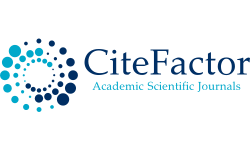Implicancias transformadoras de la Cuarta Revolución Industrial en el mercado laboral
DOI:
https://doi.org/10.22451/3002.nbr2023.vol9.2.10087Resumen
La introducción de la automatización en la producción durante la Primera Revolución Industrial marcó un antes y un después en la historia. En este marco, la inteligencia artificial y el Internet de las Cosas (IoT) son los motores de la Cuarta Revolución Industrial (Industria 4.0), como avance tecnológico que promete aún más automatización. El objetivo es comprender el alcance de la Industria 4.0 y su impacto en el empleo y la economía. Para recopilar información pertinente sobre la Cuarta Revolución Industrial y su impacto en el empleo, se realizó una revisión de la literatura. Tras la investigación realizada se puede afirmar que la Industria 4.0 pretende automatizar la producción para aumentar la precisión y la eficiencia, aunque también trae consigo problemas como el desempleo y la desaparición de puestos de trabajo. En ese sentido, políticas como incluyen la redistribución de la renta, la renta básica universal y la formación en nuevas competencias son alternativas para hacer frente a este fenómeno.
Descargas
Citas
Acemoglu, D., & Restrepo, P. (2019). Automation and new tasks: How technology displaces and reinstates labor. The Journal of Economic Perspectives: A Journal of the American Economic Association, 33(2), 3–30. https://doi.org/10.1257/jep.33.2.3
Achmad, W. (2021). Citizen and Netizen Society: The Meaning of Social Change From a Technology Point of View. Jurnal Mantik, 5(3), 1564–1570. http://iocscience.org/ejournal/index.php/mantik/article/view/1663
Alt, K. W., Al-Ahmad, A., & Woelber, J. P. (2022). Nutrition and health in human evolution-past to present. Nutrients, 14(17), 3594. https://doi.org/10.3390/nu14173594
Ambrogio, G., Filice, L., Longo, F., & Padovano, A. (2022). Workforce and supply chain disruption as a digital and technological innovation opportunity for resilient manufacturing systems in the COVID-19 pandemic. Computers & Industrial Engineering, 169(108158), 108158. https://doi.org/10.1016/j.cie.2022.108158
Borowiecki, R., Olesinski, Z., Rzepka, A., & Hys, K. (2021). Development of teal organisations in economy 4.0: An empirical research. European Research Studies, XXIV(1), 117–129. https://doi.org/10.35808/ersj/1953
Bousdekis, A., & Mentzas, G. (2021). Enterprise Integration and Interoperability for big data-driven processes in the frame of Industry 4.0. Frontiers in Big Data, 4, 644651. https://doi.org/10.3389/fdata.2021.644651
Bruner, R. F., & Miller, S. C. (2020). The great industrial revolution in Europe: 1760–1860. SSRN Electronic Journal. https://doi.org/10.2139/ssrn.3626118
Campa, R. (2019). Three scenarios of the future of work: Technological unemployment, compensation, hollowing out. Sociología y tecnociencia, 9(2), 140–154. https://doi.org/10.24197/st.2.2019.140-154
Cedersund, M. (2023). Artificial Intelligence in Banking – The Future of The Banking Work Environment [Master's thesis, Turku University of Applied Sciences]. https://urn.fi/URN:NBN:fi:amk-2023060722333
Chenoy, D., Ghosh, S. M., & Shukla, S. K. (2019). Skill development for accelerating the manufacturing sector: the role of ‘new-age’ skills for ‘Make in India’. International Journal of Training Research, 17(sup1), 112–130. https://doi.org/10.1080/14480220.2019.1639294
Cunha, D. (2020). Coppering the Industrial Revolution: History, materiality and culture in the making of an ecological regime. Journal of world-systems research, 26(1), 40–69. https://doi.org/10.5195/jwsr.2020.917
Dermont, C., & Weisstanner, D. (2020). Automation and the future of the welfare state: basic income as a response to technological change? Political Research Exchange: An ECPR Journal, 2(1), 1757387. https://doi.org/10.1080/2474736x.2020.1757387
Dhirani, L. L., Mukhtiar, N., Chowdhry, B. S., & Newe, T. (2023). Ethical dilemmas and privacy issues in emerging technologies: A review. Sensors (Basel, Switzerland), 23(3), 1151. https://doi.org/10.3390/s23031151
Dwivedi, Y. K., Hughes, L., Ismagilova, E., Aarts, G., Coombs, C., Crick, T., Duan, Y., Dwivedi, R., Edwards, J., Eirug, A., Galanos, V., Ilavarasan, P. V., Janssen, M., Jones, P., Kar, A. K., Kizgin, H., Kronemann, B., Lal, B., Lucini, B., … Williams, M. D. (2021). Artificial Intelligence (AI): Multidisciplinary perspectives on emerging challenges, opportunities, and agenda for research, practice and policy. International Journal of Information Management, 57(101994), 101994. https://doi.org/10.1016/j.ijinfomgt.2019.08.002
Eloundou, T., Manning, S., Mishkin, P., & Rock, D. (2023). GPTs are GPTs: An early look at the labor market impact potential of large language models. En arXiv [econ.GN]. http://arxiv.org/abs/2303.10130
Furendal, M., & Jebari, K. (2023). The future of work: Augmentation or stunting? Philosophy & Technology, 36(2). https://doi.org/10.1007/s13347-023-00631-w
González García, C., Núñez-Valdez, E., García-Díaz, V., Pelayo G-Bustelo, C., & Cueva-Lovelle, J. M. (2019). A review of artificial intelligence in the internet of things. International Journal of Interactive Multimedia and Artificial Intelligence, 5(4), 9. https://doi.org/10.9781/ijimai.2018.03.004
Gur, N., & Dilek, S. (2023). US–China economic rivalry and the reshoring of global supply chains. The Chinese Journal of International Politics, 16(1), 61–83. https://doi.org/10.1093/cjip/poac022
Hughes, R. T., Zhu, L., & Bednarz, T. (2021). Generative adversarial networks-enabled human-artificial intelligence collaborative applications for creative and design industries: A systematic review of current approaches and trends. Frontiers in Artificial Intelligence, 4, 604234. https://doi.org/10.3389/frai.2021.604234
Jaiswal, A., Arun, C. J., & Varma, A. (2022). Rebooting employees: upskilling for artificial intelligence in multinational corporations. The International Journal of Human Resource Management, 33(6), 1179–1208. https://doi.org/10.1080/09585192.2021.1891114
Keynes, J. M. (2010). Economic possibilities for our grandchildren. En Essays in Persuasion (pp. 321–332). Palgrave Macmillan UK.
Publicado
Cómo citar
Número
Sección
Licencia
Derechos de autor 2023 Fernando Antonio Ramos Zaga

Esta obra está bajo una licencia internacional Creative Commons Atribución-NoComercial-CompartirIgual 4.0.












